Exploring the Impact of Muhammad's Life on the Development of Islam
VerifiedAdded on 2023/03/31
|5
|683
|213
Essay
AI Summary
This essay delves into the personal history of Prophet Muhammad and its profound influence on the development of Islam. It examines key aspects of his life, including his status as an orphan, his role as a negotiator and diplomat, and his experiences as a merchant and caravan leader. The essay highlights how these personal experiences shaped the core values and teachings of Islam, particularly in relation to the treatment of orphans, conflict resolution, ethical business practices, and avoiding tribal warfare. The analysis also references the Treaty of Hudaibiyah to exemplify Muhammad's message of peace and non-violence. Overall, the essay illustrates how Muhammad's life in the Arabian context directly influenced the formation and dissemination of Islamic principles, offering insights into the origins and evolution of the faith.
1 out of 5
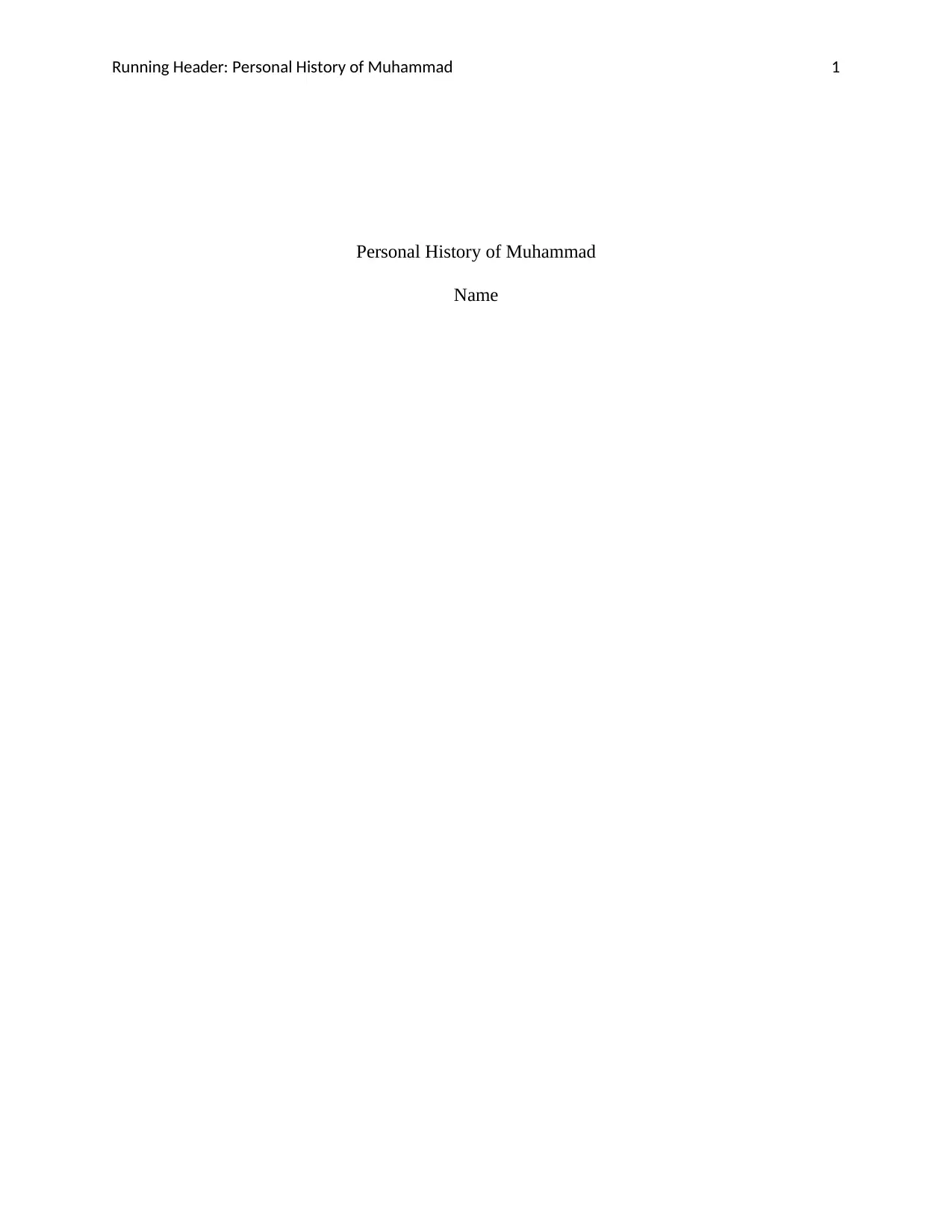
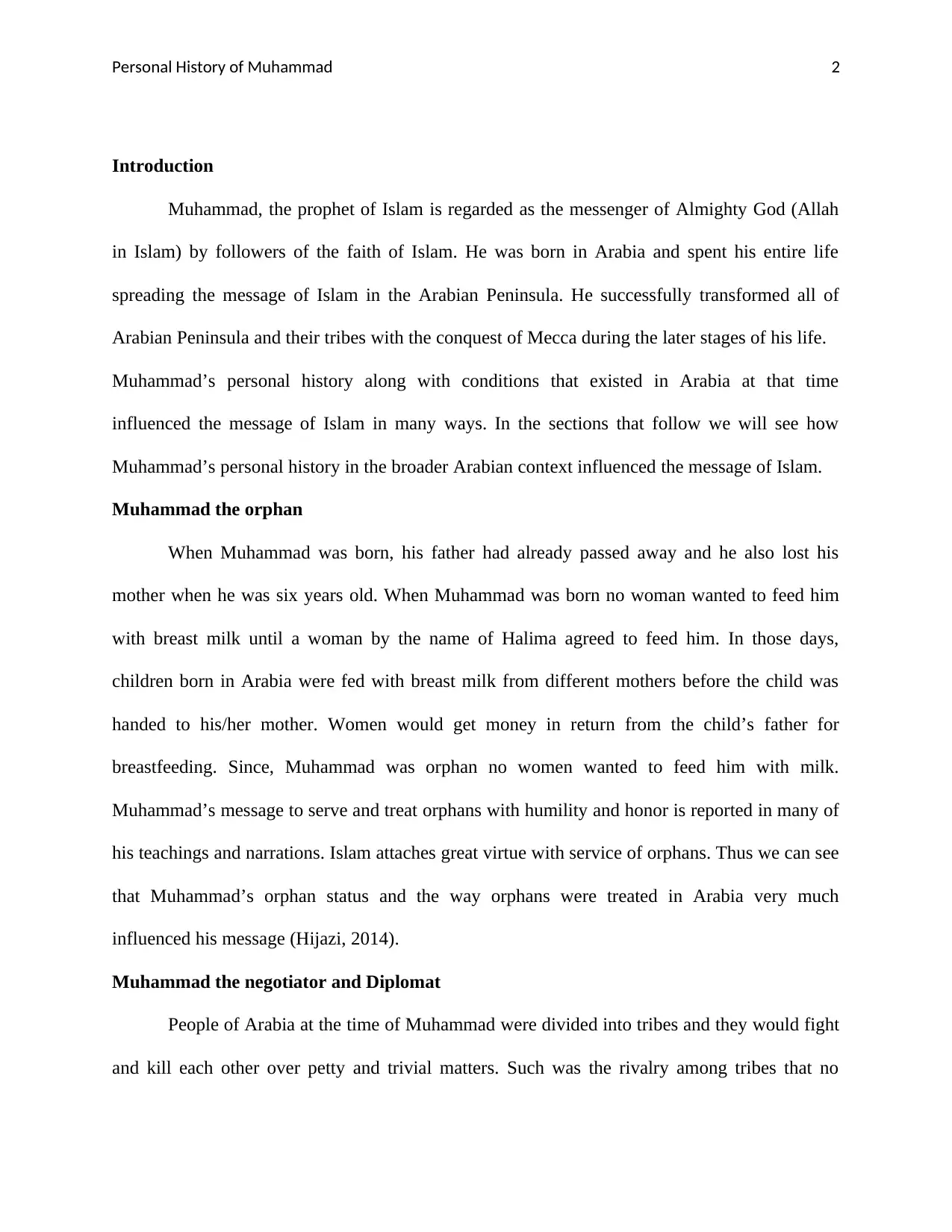
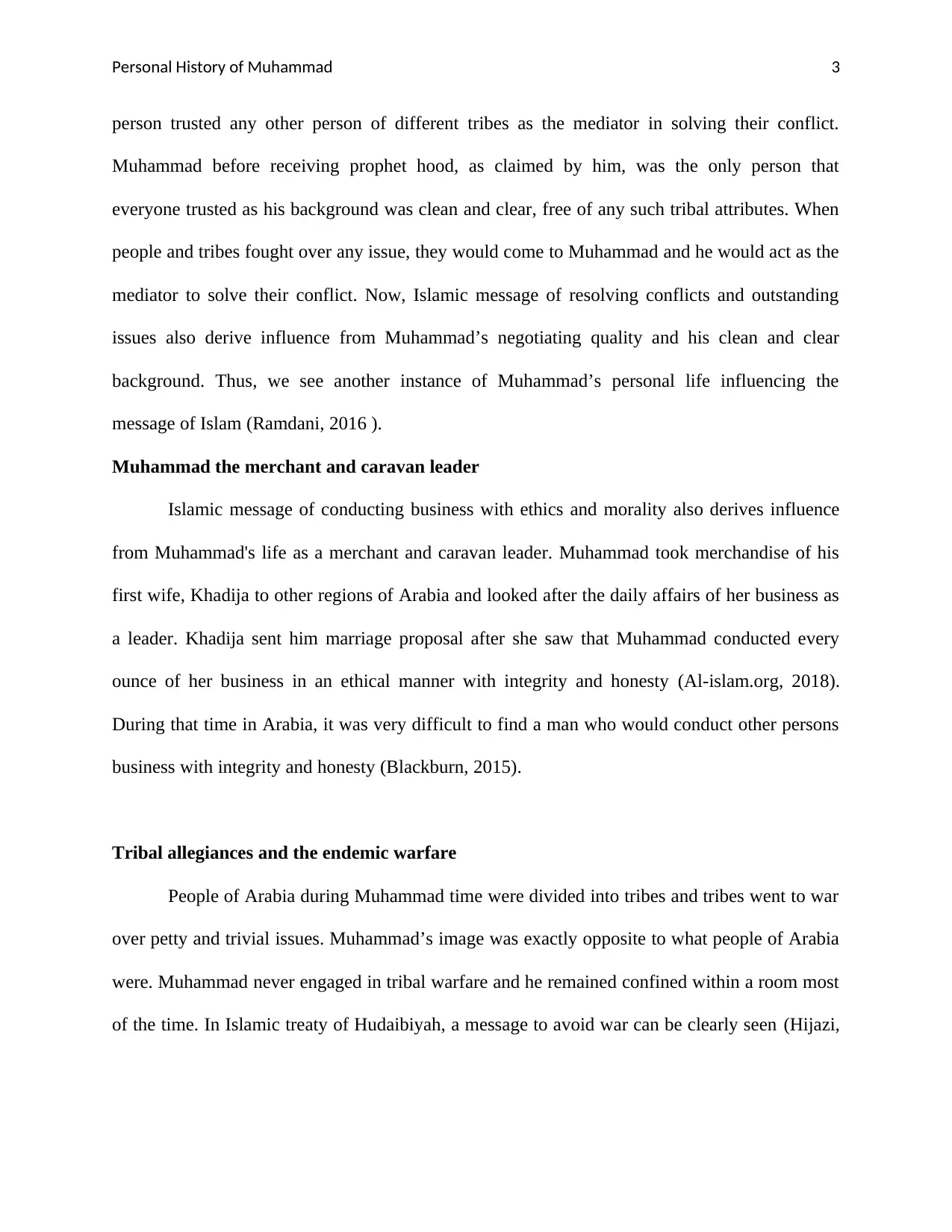

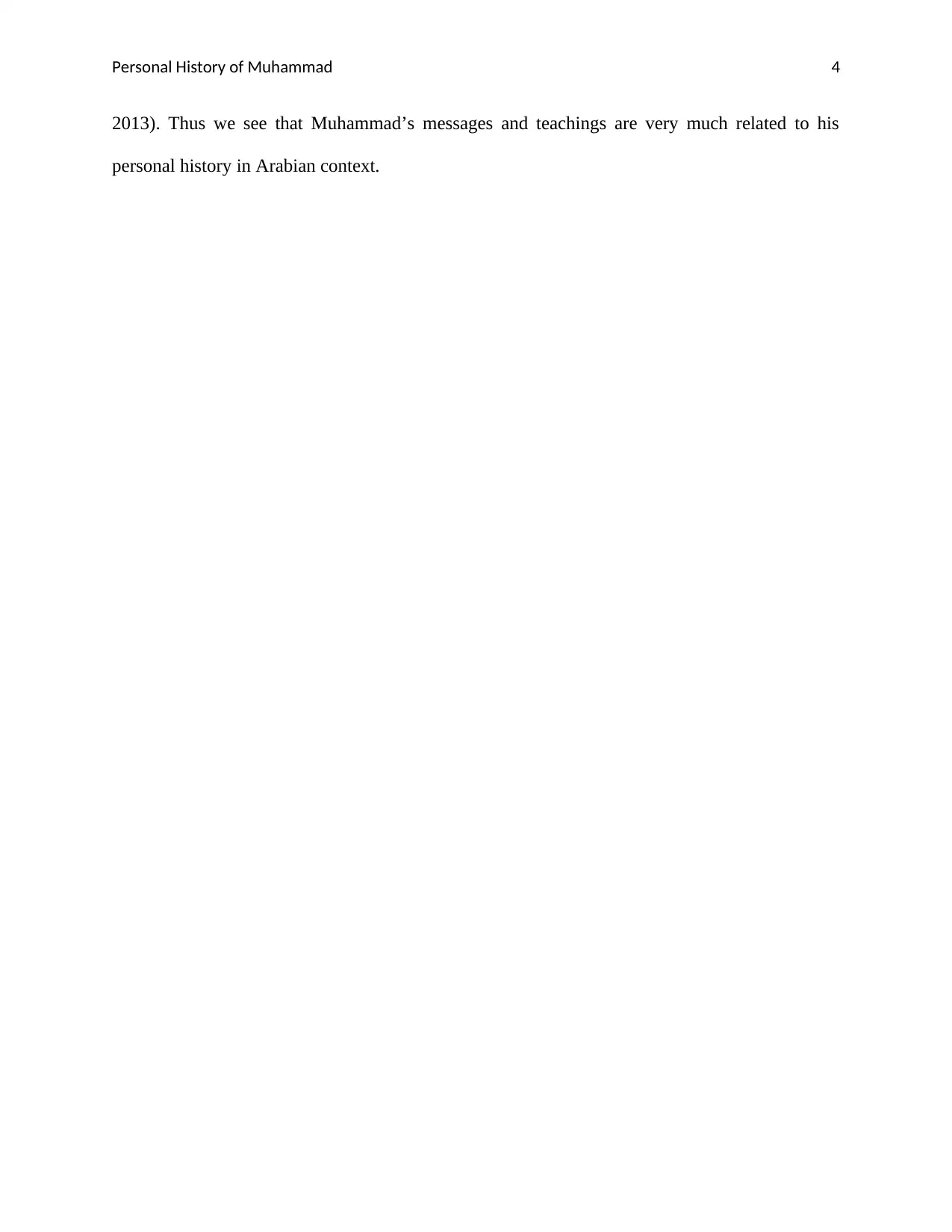
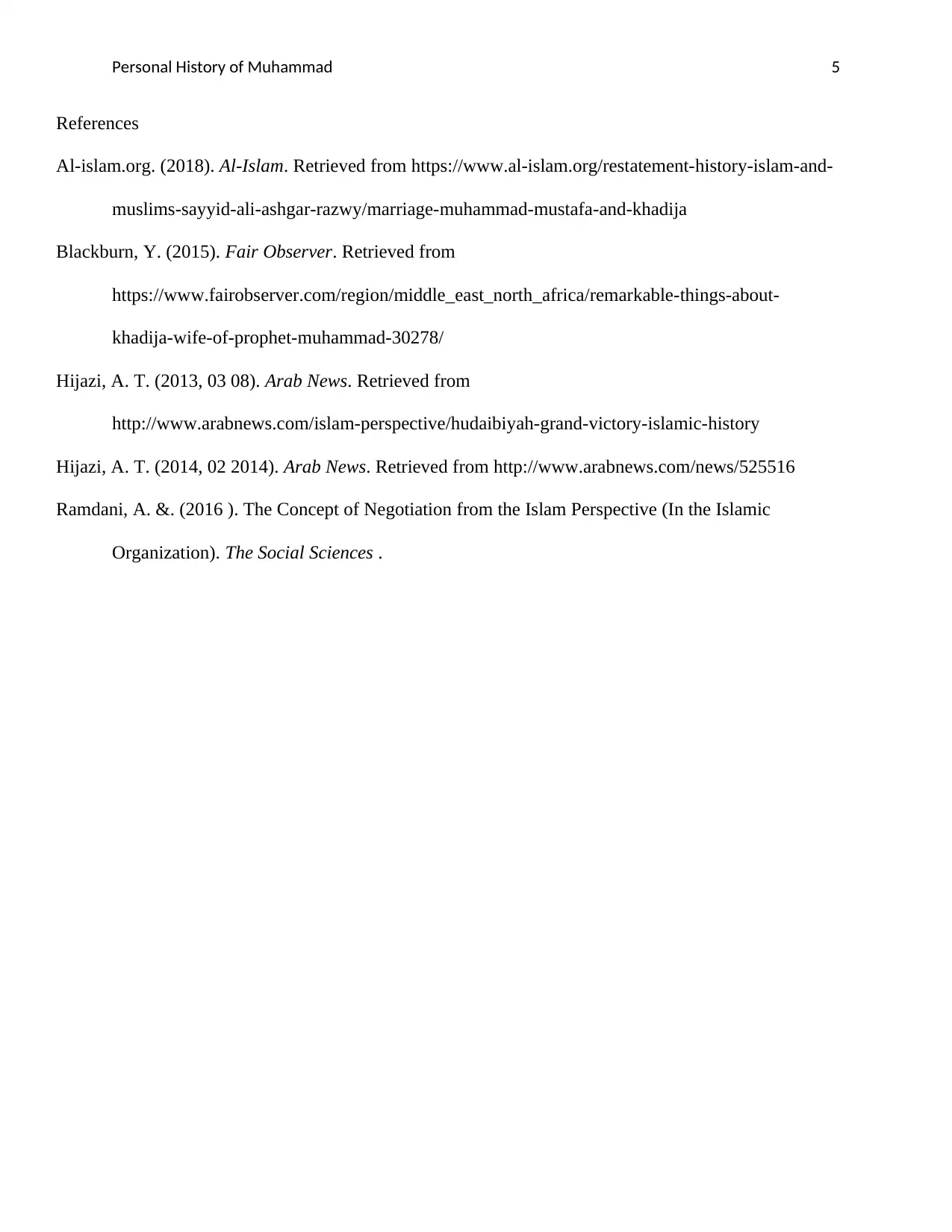
![[object Object]](/_next/static/media/star-bottom.7253800d.svg)